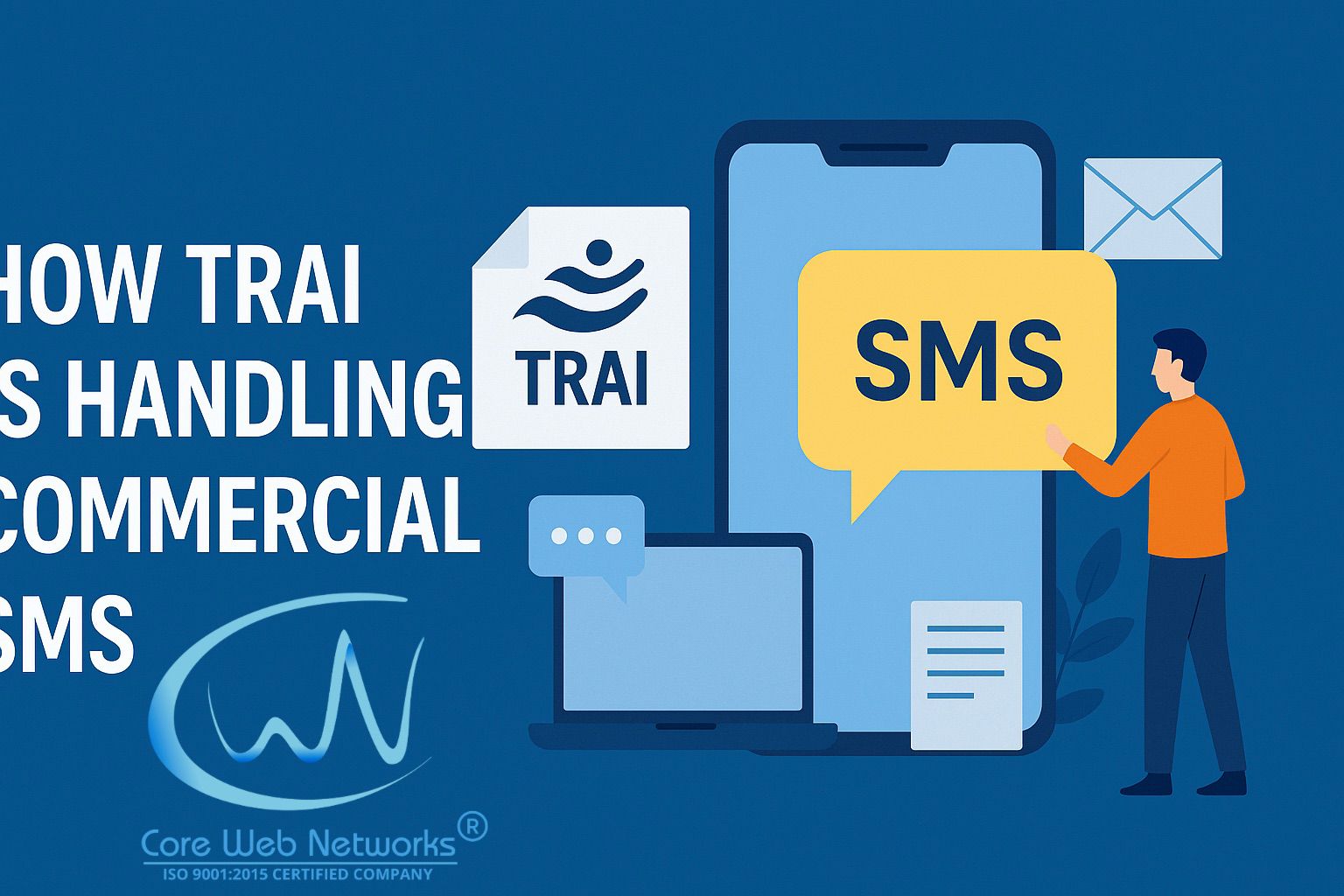
How TRAI is Handling Commercial SMS in India – Complete Process Explained
In the digital age, commercial SMS services have become one of the most effective marketing tools for businesses. Whether it’s transactional SMS, OTP delivery, or bulk promotional messages, businesses rely heavily on SMS communication. But how are these messages regulated? Who provides these services? And what role does TRAI play in managing this ecosystem?
In this blog, we’ll walk you through how TRAI manages commercial SMS in India, how telecom operators interact with aggregators, and how businesses can use SMS services legally and efficiently.
What is Commercial SMS?
Commercial SMS refers to messages sent by businesses or service providers to their customers. These messages can be:
• Promotional SMS (offers, discounts, etc.)
• Transactional SMS (order updates, OTPs, alerts)
• Service SMS (reminders, service notifications)
To regulate these messages and prevent spam or fraudulent communication, the Telecom Regulatory Authority of India (TRAI) has laid out strict guidelines under the Telecom Commercial Communications Customer Preference Regulations (TCCCPR), 2018.
⸻
TRAI’s Role in Regulating SMS Services:
TRAI acts as the regulatory body for the telecom sector in India. Here’s how TRAI handles commercial SMS:
1. DLT Registration (Distributed Ledger Technology)
To control spam and unauthorized SMS, TRAI has made it mandatory for all businesses and service providers to register on a DLT platform. This ensures transparency and accountability.
DLT registration includes:
• Business Entity Registration
• Header (Sender ID) Registration
• Template Registration for every type of SMS
This DLT system is implemented across all telecom operators in India like Airtel, Vodafone Idea, Jio, and BSNL.
2. Sender ID and Template Scrutiny
Once a business registers a Sender ID (like VK-COREWB), it must also register message templates. These templates must clearly mention variable parts (like names, OTPs) and be approved before use. This prevents misuse of sender IDs for phishing or fraud.
⸻
How Telecom Operators Sell SMS Services:
After DLT approval, businesses need SMS credits to start sending messages. Here’s where telecom companies and aggregators come in.
Step-by-Step Process:
1. Telecom Companies Allocate SMS Routes:
Operators like Jio, Airtel, and Vodafone Idea manage the actual delivery infrastructure. They offer SMS routes (Transactional/Promotional) to authorized SMS Aggregators.
2. Aggregators Buy SMS in Bulk:
Aggregators purchase SMS credits in large volumes directly from telecom companies. These aggregators act as intermediaries and provide SMS APIs and web panels to end users.
3. Businesses Buy from Aggregators:
End users (startups, e-commerce platforms, schools, banks) then purchase SMS packs from these aggregators. Based on the registered DLT headers and templates, messages are pushed through the telecom network and delivered to users.
⸻
Why DLT and TRAI Regulation Matters:
• Reduces Spam: Ensures only approved messages are sent.
• Enhances Security: Stops phishing and scams via fake SMS.
• Builds Trust: Customers recognize legitimate business communication.
⸻
Conclusion:
If you’re a business looking to leverage bulk SMS marketing, it’s important to follow TRAI’s guidelines and work with a trusted DLT-registered SMS aggregator. From registration to delivery, the process is streamlined but requires compliance at every step.
At Core Web Networks (www.bulksmsproviderdelhi.in), we provide DLT-approved bulk SMS services, helping you deliver secure and high-conversion messages to your audience.
Need help with DLT registration or want to buy bulk SMS credits?
Contact us today to get started with secure and compliant SMS solutions. Call: 9899098962 Sahil Joshi (Founder - Core Web Networks)

